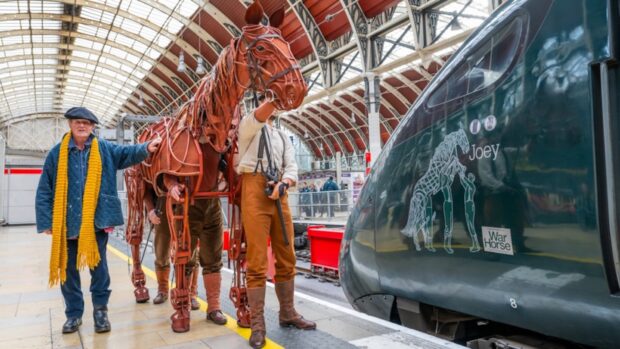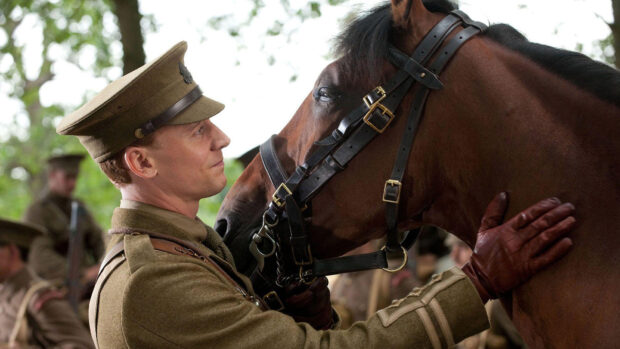Many of us who were charmed and captivated by the National Theatre’s production of War Horse have wondered how it would fare on the big screen.
How would Steven Spielberg portray the Great War through the eyes of a horse? Although the first-person narrative of Michael Morpurgo’s novel did not make it to the stage, the extraordinary puppets ensured that Joey, the eponymous war horse, remained at its core. Without the puppets, would War Horse lose its USP?
That, alas, is what has happened. While Spielberg has made a cracking movie, it is, in the end, just another film about World War I. His War Horse is faithful to the story – farm boy’s beloved horse is sold to the cavalry; he enlists and vows to find him. But the emotional punch and insight that had theatre audiences weeping is just not there.
War Horse looks glorious and features a stellar cast of British actors, with newcomer Jeremy Irvine as farm boy Albert Narracott. Special mention must be made of the 13 equine stars who play Joey; every buck, snort and head toss beautifully choreographed.
Battle set pieces are as accomplished as you would expect from the director of Saving Private Ryan. The cavalry charge that puts Joey in enemy hands ably captures the grotesque futility of sending brave horses and men into the German guns.
This is a curiously bloodless film, though none the less powerful for it. Spielberg has made a film about the war that became a byword for carnage that is still family-friendly.
War Horse is at its best when it’s about the horse – the early scenes on the farm, Joey’s terrified dash across No Man’s Land and his eventual reunion with Albert. When the story steps away from the horse, it loses its way and the various characters that Joey meets on his odyssey take over.
There is humour, too, amid the horror, notably when a German soldier picks an English Tommy up on his grammar. And the bad-tempered goose, such a hit in the stage play, has survived the shift to the big screen to rule the Narracotts’ farmyard again.
But the long closing shot of Joey, gazing out across Dartmoor feels like an afterthought – bolted on at the end to remind audiences that it started, at least, as a film about a horse.
Before the National Theatre picked up his “least successful book”, Michael Morpurgo struggled for years to turn it into a screenplay. Some of us would wish he had succeeded.
War Horse will be showing in cinemas across the UK from Friday 13 January, 2012
Don’t miss H&H’s exclusive feature about the equestrian faces who helped make the movie in today’s magazine (12 January 2012)



